Nuns lead shareholder vote over Citigroup’s fossil fuel financing: ‘Sisters are very persistent’
Since the 2015 Paris Agreement, Wall Street has provided $1.4 trillion to the fossil fuel industry, according to the climate coalition Stop The Money Pipeline, writes Louise Boyle

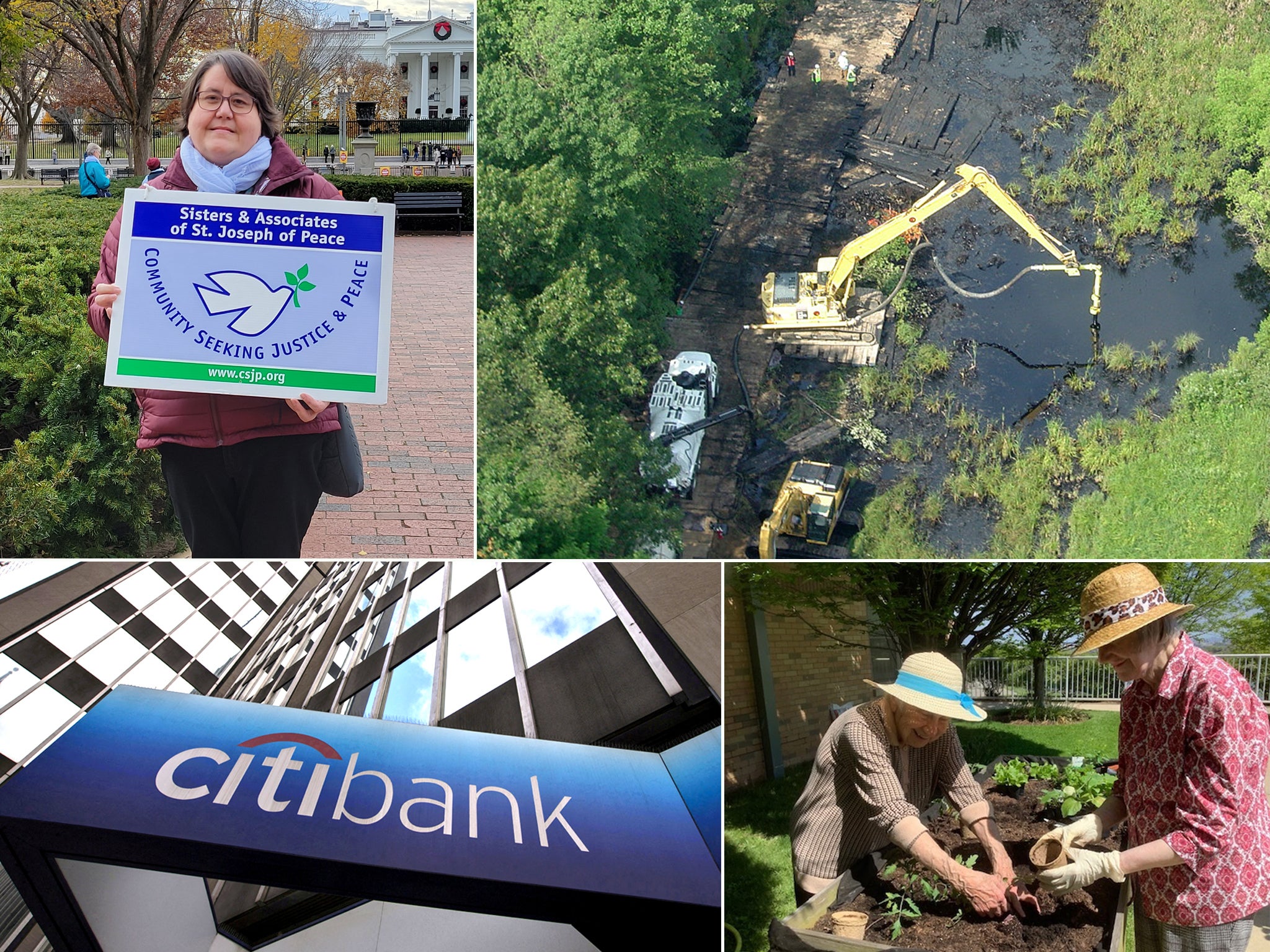
Ahead of its AGM on Tuesday, Citigroup has called on shareholders to vote against a proposal from a group of nuns with a small stake in the bank, saying the congregation made “untrue” statements about the corporation’s fossil fuel financing.
The Sisters of St Joseph of Peace, along with other religious groups, have asked that Citi produce a report on how it is living up to commitments to protect the rights of Indigenous people, particularly when it comes to financing fossil fuel infrastructure.
“Citigroup has a history of financing projects and companies that violate Indigenous rights, most notably as a lead financier of the Dakota Access pipeline in 2016,” the proposal reads, referencing the highly controversial development at the Standing Rock Sioux Reservation in North Dakota.
“Recently, Citigroup provided over $5 billion to Enbridge, enabling the widely opposed Enbridge Line 3 and Line 5 tar sands pipeline reroutes.”
Enbridge, a multinational energy company based in Canada, has a lengthy history of disastrous oil spills and violations of treaties of Indigenous communities.
Citi called the Sisters’ AGM proposal “untrue” in a proxy statement to shareholders last month.
It says the Sisters’ claim “asserts that Citi is providing $5 billion in financing to the Enbridge line 3 pipeline expansion, which is untrue. Citi has provided no project-related financing to the Enbridge line 3 project,” Citi wrote.
Citi provided $5.15bn in financing to Enbridge between 2016 and 2020, according to a report from environmental organisation Rainforest Action Network for “general corporate purposes”.
(Citi is the largest US lender to Enbridge, according to the list, behind five Canadian banks – TD Bank, Bank of Montreal, Scotiabank, RBC and CIBC.)
In a filing to the Securities and Exchange Commission (SEC), the Sisters said that Citi “misinterprets” their resolution, and is attempting to “minimize its role in enabling these projects”.
“Though the Company highlights that it did not provide any project-related financing for the Line 3 tar sands pipeline, Enbridge did not seek any project financing for Line 3, instead funding the $7 billion pipeline through general corporate finance,” the SEC notice reads.
The bank’s pushback may work against them. Sister Susan Francois, assistant congregation leader and treasurer of Sisters of St Joseph of Peace, told The Independent how a similar proposal at Citi’s 2022 AGM received support from nearly a third of shareholders.
“To be honest, I think Citigroup may have done us a favor in questioning our truthfulness of how we represented their financing because it’s gaining traction,” Sister Susan Francois said.
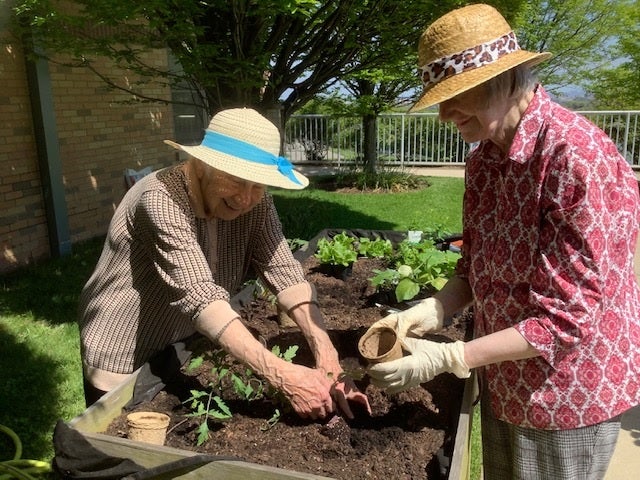
“That’s part of why the Sisters are involved in shareholder advocacy because we know that we have moral authority. We know that people trust what we say and how we move forward.”
Sister Susan Francois said the nuns “did not wish to be adversarial” but hoped that other shareholders would see it as a common-sense effort for transparency.
“We are shareholders and we believe that good business is to respect human rights, and to live up to commitments that we make,” she said.
“If it doesn’t pass, we’ll come back next year. Sisters are very persistent. It’s our role and opportunity to use our voice and moral authority in solidarity with our Indigenous brothers and sisters.”
The Independent has contacted Citigroup for comment.
It’s our role and opportunity to use our voice and moral authority in solidarity with our Indigenous brothers and sisters.
According to Citi’s proxy statement, “in sensitive sectors such as oil and gas” the bank “reviews clients to evaluate environmental and social policies and practices and to identify if these clients’ operations may pose potential risks to sensitive areas such as Indigenous communities or traditional lands, or areas of high biodiversity”.
When identified, these “Areas of high Caution” ... “trigger special consideration, enhanced due diligence and client engagement to understand if the client has appropriate policies, staffing, and management systems to address these sensitive risks to avoid harm,” Citi continued.
“It is precisely this type of due diligence and engagement in project and general corporate purposes financing that helps Citi meet its responsibility to respect human rights, including Indigenous Peoples’ rights, and allows us to use our leverage with our clients to respect these rights,” the bank added.
The Sisters of St Joseph of Peace is a Roman Catholic order of 114 nuns based in the UK and US with a mission “to promote peace through justice”.
With a median age of 83, the Sisters’ Citigroup stock is part of their wider investment portfolio which supports elderly nuns and also furthers the congregation’s missionary work, focusing on those living in poverty and on the margins of society.
Sister Susan Francois said that the Catholic order had made the decision to divest from fossil fuels over the past few years.
“For us, as Catholics in particular, we see this is part of the call of our faith. Pope Francis has called us to listen to the cry of the Earth and the cry of the poor,” she said.
“When he went to Canada, he listened to Indigenous communities who have been impacted by projects such as [those of Enbridge].”
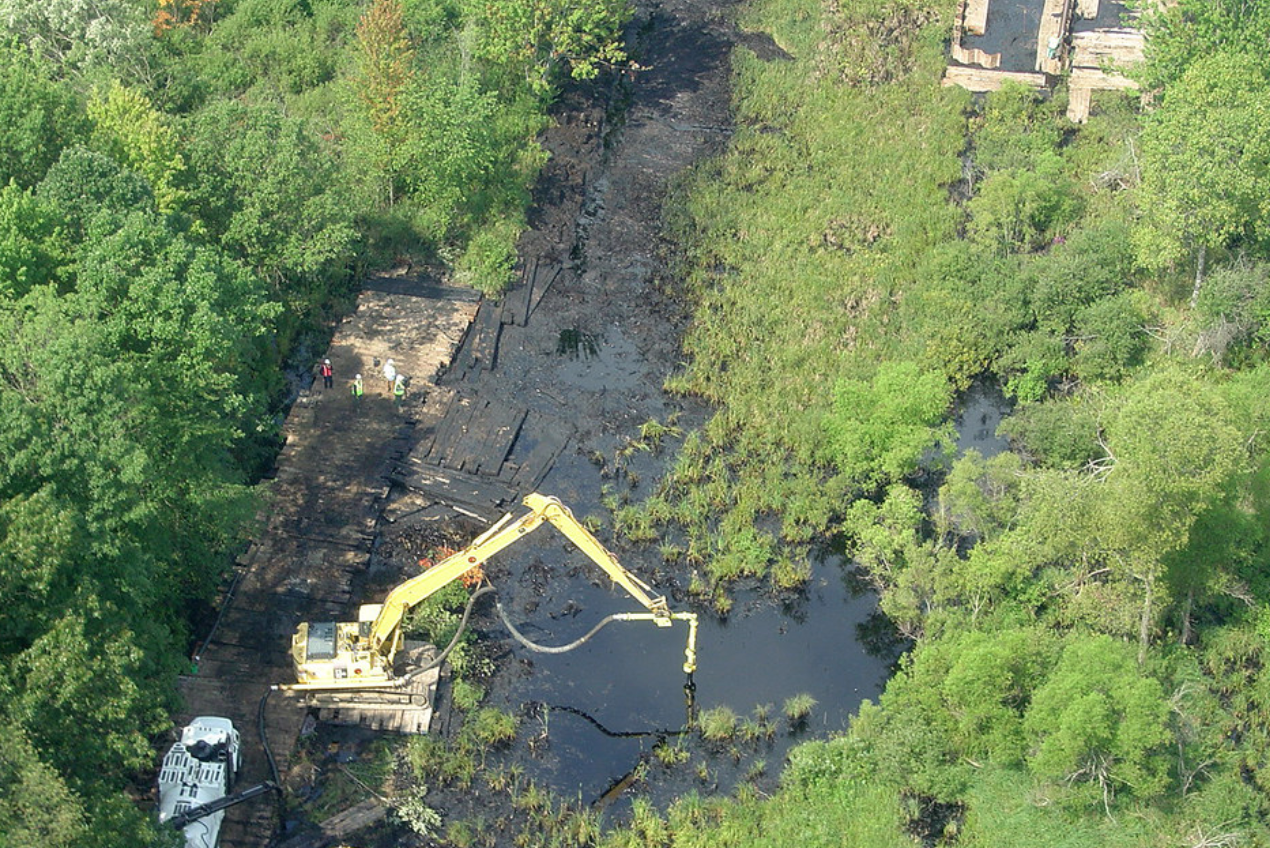
She added that while the Sisters don’t invest directly in fossil fuels, “it’s still all connected”.
“We do have investments in Citigroup and other organizations and you can’t do these [oil] projects without financing,” she said.
“I think every investor who’s concerned about the common good, and the future of our planet is well-served if they think about the varied ways that they could use their influence to make a difference. Because it’s going to take all of us.”
Activist investing has come a long way since the “corporate raiders” of the Seventies and Eighties, and the strategy has been increasingly deployed to stop banks ploughing money into new oil and gas development.
The latest UN climate science report warns that in order to prevent ever-worsening climate devastation, there is no room for any new fossil fuel infrastructure.
Since the 2015 Paris Agreement – aimed at keeping global temperature rise to 1.5C – was signed, Wall Street has provided $1.4 trillion to the fossil fuel industry, according to the climate coalition Stop The Money Pipeline.
The Sisters of St Joseph of Peace filed their proposal with other faith-based groups: the Sisters of St Dominic of Caldwell, New Jersey; The Sisters of St Francis of Philadelphia, and United Church Funds under the umbrella coalition, Investor Advocates for Social Justice.
Line 3 and Line 5 pump hundreds of thousands of barrels of tar sands oil from Alberta, Canada to the US Midwest each day. Tar sands are one of the dirtiest fossil fuels which emit around three times the planet-heating emissions of regular crude.
In 2010, Line 3 was the source of the largest inland oil spill in US history in the small town of Marshall, Michigan.
Tribal leaders in the Great Lakes region have described the Line 5 reroute as “cultural and environmental genocide”.
In an email to The Independent, an Enbridge spokesperson said: “Line 5 poses little risk to natural and cultural resources, nor does it endanger the way of life of Indigenous communities. Line 5 is operated safely and placing the line in a tunnel well below the lake floor at the Straits of Mackinac will only serve to make a safe pipeline safer.”
Enbridge also stated that it is “committed to contributing to reconciliation with Indigenous Peoples, including through economic inclusion”.
Citigroup is also one of the biggest financial backers of oil and gas projects in the Amazon, proving an estimated $42bn “in open or recently matured deals, according to preliminary research completed by Stand Research Group in April 2022”.
Citi’s AGM will be held on 25 April. Ahead of the meeting , the bank published its Environmental, Social and Governance (ESG) Report for 2022, highlighting progress in reaching net zero by 2050.
In the last two years, Citi has “financed and facilitated” a total of $348.5bn for “a wide range of activities from renewable energy and clean technology to healthcare and affordable housing”.
Join our commenting forum
Join thought-provoking conversations, follow other Independent readers and see their replies
Comments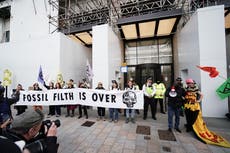

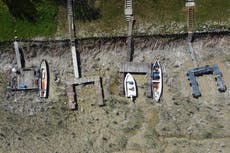
Bookmark popover
Removed from bookmarks